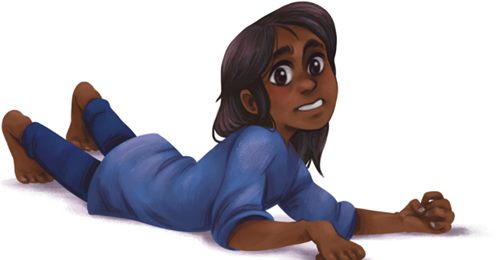
How storybooks about children with a disability (can) raise awareness and increase understanding.
Worldwide around 93 million children live with some form of disability and are frequently seen as being less able and even less valuable than other children. Society, and sometimes even their own family, often marginalizes or excludes them.
Discrimination is a universal problem. It is also evident in Bangladesh and Ghana where “Stories for Inclusion” will be piloted.
The root causes stem from cultural taboos, peer pressure in the community, and deep-rooted prejudices passed down from generation to generation.
To improve the situation, children with disabilities must first become more visible in society.
“There is only one way to look at things until someone shows us how to look at them with different eyes.” ~ Pablo Picasso
THE PROJECT
‘Stories for Inclusion’ aims to do this by developing and distributing children’s books featuring characters with a disability and showing how it feels to grow up with a disability.
In addition, the project will help mainstream schools better understand children who have a disability and accept them in the same way they would accept any other child.
Reading about characters with disabilities will offer every child the chance to learn about and experience diversity through stories. This will lead to a more open and tolerant society, beginning with children.
During the first phase of the project, a children’s book about growing up with Cerebral Palsy (CP) will be published.
The book, called “My name is Runa, tells the real-life story of Runa, a young girl with CP in Bangladesh. It describes Runa’s experiences when growing up, both positive and negative.

Runa, who is now a teaching assistant at the Niketan school for children with special needs, will also visit regular schools in Bangladesh to talk about CP.
Runa’s book will be available in English, Bangla and Dutch and will reach thousands of children in Ghana and Bangladesh. “My Name is Runa” includes an Activity Guide with additional information for teachers and parents.
Selected primary schools in Ghana will also receive a selection of age-appropriate children’s books about living with a disability.
Local writers and illustrators in Ghana and Bangladesh will also develop stories through the project. In the second phase of the project (2022) children, teachers, school principals and parents will provide feedback.
The focus will be on knowledge sharing. In this way, the project can serve as a role model for other schools and countries.
Presenting storybook characters with physical, mental or other disabilities to primary school children in a positive way will expand their perception of ‘normal’ and will increase their capacity for empathy and acceptance.
WHY
Our research revealed that inclusive storybooks featuring children with disabilities are either hard to find or simply do not exist, especially in low-income countries.
Most books about disability tend to be in English and very few give the child with a disability a voice. Some stories even contain negative depictions of disability, especially some classic children’s books, further reinforcing negative stereotypes among children.
Developing inclusive children’s books about disability locally and distributing them internationally will further increase the impact of “Stories for Inclusion”.
PARTNERSHIP
The project evolved from a partnership between two registered charities in the Netherlands: the Niketan Foundation and Biblionef.
Niketan provides education and support to children and young people with disabilities at family, community and school level in Bangladesh, while Biblionef helps underprivileged children worldwide to discover the joy of reading by giving them new, inspiring children’s books.